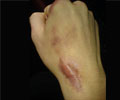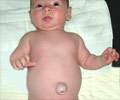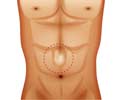Permanent mesh placement is not associated with postoperative wound infection. Preoperative smoking cessation may improve surgical outcomes in VHR.
Abdominal wall hernias are one of the most common conditions treated by general surgeons, with more than 100,000 repairs performed annually. Although ventral hernia repair (VHR) is a common operation, recurrences and complications remain a vexing problem. Wound infection has been identified as a consistent risk factor for recurrence after VHR.
A recent study, which appears in the November issue of The American Journal of Surgery was designed with the aim to identify predictors of postoperative wound infection in subjects undergoing VHR in a retrospective multicenter study of ventral hernia outcomes. The study examines patient- and procedure-specific variables associated with wound infection, and specifically focuses on the effect of mesh placement at VHR on postoperative wound complications.For the study, a cohort of subjects undergoing VHR from 13 regional Veterans Health Administration (VHA) sites was identified. Patient-specific risk variables were obtained from National Surgical Quality Improvement Program (NSQIP) data. Operative variables were obtained from physician-abstracted operative notes. Univariate and multivariable logistic regression analysis was used to model predictors of postoperative wound infection.
A total of 1505 VHR cases were used for analysis; wound infection occurred in 5% (n = 74). Best-fit logistic regression models demonstrated that steroid use, smoking, prolonged operative time, and use of absorbable mesh, acting as a surrogate marker for a more complex procedure, were significant independent predictors of wound infection.
The results demonstrated that chronic steroid use, current smoking, prolonged operative time, and use of absorbable mesh (likely a marker for more complex intraoperative variables) were significant predictors of postoperative wound infection in VHR.
The only modifiable risk factor identified was current smoking. Smoking cessation prior to elective hernia repair may decrease the rate of wound infection and ultimately hernia recurrence. VHR remains a challenging problem for general surgeons. Mesh repair has been shown to decrease recurrence but is not systematically used. This study provides further evidence that use of permanent mesh prosthesis for VHR is not associated with increased wound complications in short-term follow-up. However, the authors state that long-term studies are needed to further verify the safety and efficacy of mesh use for ventral hernia repair.
About ventral hernia (Incisional Hernia):
A hernia is the protrusion of an organ through the wall that normally contains it. An incisional hernia occurs in the abdomen in the area of an old surgical scar. A part of an organ in the abdomen, such as the bowel or intestines, protrudes through the weakened area of the abdominal wall.









